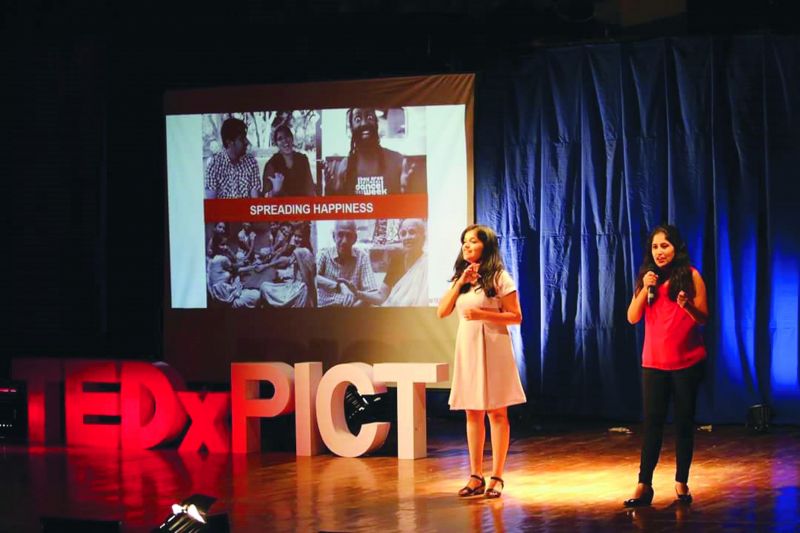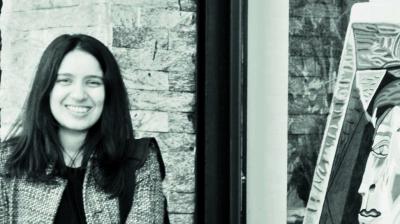Humanitarian entrepreneurs
Janhavi Joshi and Nupura Kirloskar recently made it to the forbes 30 under 30 list.
Janhavi Joshi and Nupura Kirloskar’s entrepreneurial and humanitarian journey recently landed them in the Forbes’ 30 under 30 list. The founders of Bleetech Innovations — a startup that works for the deaf community by providing technological and design-based support — talk about their journey, the challenges and future plans. The duo met in college and graduated together in 2015. “We both pursued product designing and in our third year, we had a course on designs for specially-abled people. Janhavi is a Kathak dancer. She learnt it in Pune. So, we went for one of the shows there and saw a performance by a group of deaf dancers. They were continuously looking for cues and there was a disconnect between the dancers and the audience. The experience seemed incomplete, which is why we started researching on this subject,” says Nupura.
Hearing is an essential part of learning languages, explains Janhavi, “For the hearing impaired, there is sign language but in India not much is available in the Indian sign language.”

The young women then took up the project for their college assignment and were encouraged by the college to pursue the same project as their final graduation project as well. “We worked with the same group of dancers and it really worked out. The feedback was very positive,” says Nupura. Janhavi, who has been learning Kathak since she was 8, says, “When I went to design school, most of my projects were related to dance. I was aware of all the problems related to it and wanted to provide solutions using design. When we saw the deaf girls dance, we thought that it would be incredible to work on solving this problem.” Since it was two youngsters venturing into a business model for the first time, the challenges they had to overcome were massive. “For us it was just a project and we knew nothing about managing a business. It was a new territory for us. We are also not from a technical background and we outsourced technology initially. We didn’t even have an investment. Our first employee was hired in January 2016 and we were scared, as now we were responsible for someone’s salary,” says Nupura.
The duo then started taking design assignments to sustain themselves. “We didn’t even know how to delegate tasks. That is something we learnt slowly,” she adds. Before working on this project, the duo had never tried their products on people and were apprehensive. Janhavi says, “The reactions of the dancers were very important to us. Thankfully, their reactions were incredible. It also meant so much to them that someone was working exclusively to solve this problem and paying attention to their needs. It made us feel special and encouraged us to go ahead with the project and make it into a company.” Having overcome their initial fears, their team expanded quickly afterwards. Till now they have designed around 30 different products.
Talking about their first product, Nupura says, “It’s a smart watch with a sound detection mechanism in it. It listens for you. Once the sound is saved, whenever it is played again, the watch will hear it, detect it and guide you. The watch vibrates in a specific way or a notification pops up. For songs, it works on a beat pattern.” The two have also designed a web portal called AskBlee where they answer various questions in sign language. “AskBlee started as marketing initiative for our first project. We were answering questions related to the products in the sign language but it steadily grew and today, we have around 5,000 people on the platform,” Janhavi explains. Talking about her equation with Nupura, Janhavi says, “We have been roommates forever and becoming co-founders was a very natural process. We complement each other in terms of our strengths and weaknesses and it has always been advantageous for us to be together.”


















